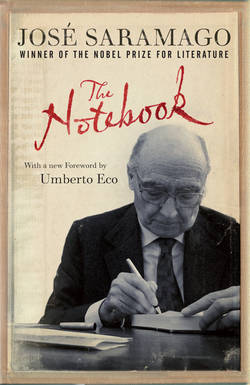Читать книгу The Notebook - José Saramago - Страница 39
На сайте Литреса книга снята с продажи.
October 22: Chico Buarque de Holanda
ОглавлениеDo parallel universes exist? Faced with the various “proofs” presented to the court of public opinion by those writers who dedicate themselves to science fiction, it is not hard to believe that they do, or at least to concede to this audacious hypothesis that which we would deny no one—that is, the benefit of the doubt. Now, supposing such parallel universes do exist, it would be logical and I think inevitable that we should acknowledge the existence of parallel literatures, parallel writers, parallel books. A sarcastic soul would not fail to remind us that you needn’t go that far to find parallel writers, better known as plagiarists, who nonetheless never actually become real plagiarists at all because they feel obliged to put something of their own labor into the work they sign in their own name. Absolute plagiarism was what Pierre Menard did, who according to Borges copied Quixote word for word, and even in this case Borges himself warned us that the word justice in the twentieth century does not mean the same thing (or the same justice) as when it was written at the beginning of the seventeenth. . . Another kind of parallel writer (nowadays called a “ghost”) is the writer who writes for others, so that they can enjoy the supposed or actual glory of seeing their names on a book jacket. It is this type of author that Chico Buarque de Holanda’s novel Budapest is apparently about, and if I say apparently it is only because the ghost whose grotesque adventures we follow (entertained, and at the same time filled with pity) is merely the unconscious cause of a series of repetitions, which, if not actually repeated universes or literatures, are certainly, disconcertingly, repetitions of authors and books. What is most unsettling, however, is the feeling of vertigo that continually overtakes the reader, who from moment to moment knew where he was but from moment to moment does not know where he is. Without seeming to be trying to do so, each page of the novel expresses a “philosophical” question and an “ontological” provocation: What is reality, after all? What and who am I, after all, in this scheme they have taught me to call reality? A book exists, stops existing, will exist again. One person wrote it, another person signed it; if the book disappears, will they both disappear, too? And if they disappear, will they disappear altogether or only in part? If one survives, will he survive in this universe or another? Who would I be, if by surviving I were no longer who I was? Chico Buarque shows great audacity in this book; he writes crossing a chasm on a high wire and makes it to the other side. To the side where we find his work masterfully accomplished, demonstrating a mastery of language, of narrative construction, of just doing. I don’t think I am wrong when I say that something new happened in Brazil with the appearance of this book.
